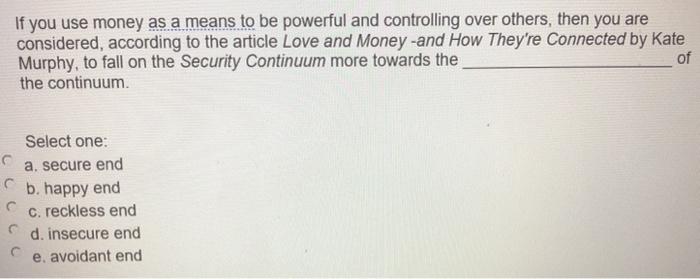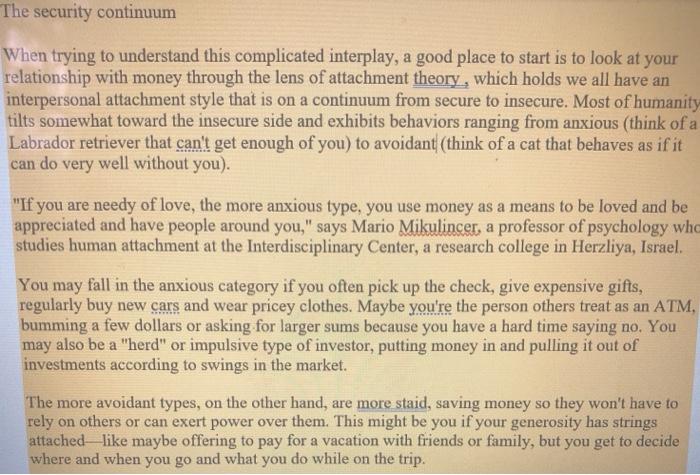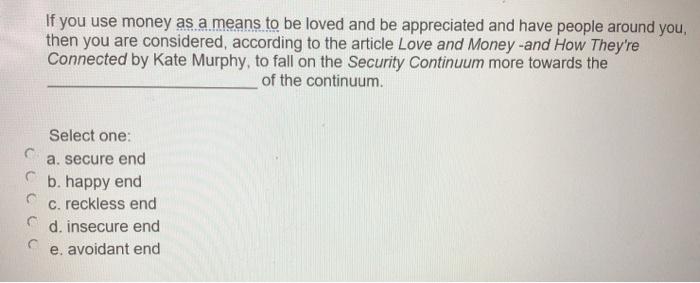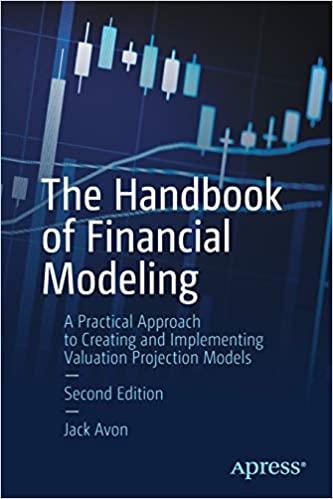Please use this question. Ignore the first one

The security continuum When trying to understand this complicated interplay, a good place to start is to look at your relationship with money through the lens of attachment theory, which holds we all have an interpersonal attachment style that is on a continuum from secure to insecure. Most of humanity tilts somewhat toward the insecure side and exhibits behaviors ranging from anxious (think of a Labrador retriever that can't get enough of you) to avoidant (think of a cat that behaves as if it can do very well without you). "If you are needy of love, the more anxious type, you use money as a means to be loved and be appreciated and have people around you," says Mario Mikulincer, a professor of psychology who studies human attachment at the Interdisciplinary Center, a research college in Herzliya, Israel. You may fall in the anxious category if you often pick up the check, give expensive gifts, regularly buy new cars and wear pricey clothes. Maybe you're the person others treat as an ATM, bumming a few dollars or asking for larger sums because you have a hard time saying no. You may also be a "herd" or impulsive type of investor, putting money in and pulling it out of investments according to swings in the market. The more avoidant types, on the other hand, are more staid, saving money so they won't have to rely on others or can exert power over them. This might be you if your generosity has strings attached_like maybe offering to pay for a vacation with friends or family, but you get to decide where and when you go and what you do while on the trip. If you use money as a means to be loved and be appreciated and have people around you, then you are considered, according to the article Love and Money -and How They're Connected by Kate Murphy, to fall on the Security Continuum more towards the of the continuum Select one: a. secure end b. happy end C. reckless end d. insecure end e. avoidant end If you use money as a means to be powerful and controlling over others, then you are considered, according to the article Love and Money -and How They're Connected by Kate Murphy, to fall on the Security Continuum more towards the of the continuum. Select one: a. secure end b. happy end C. reckless end d. insecure end e. avoidant end










